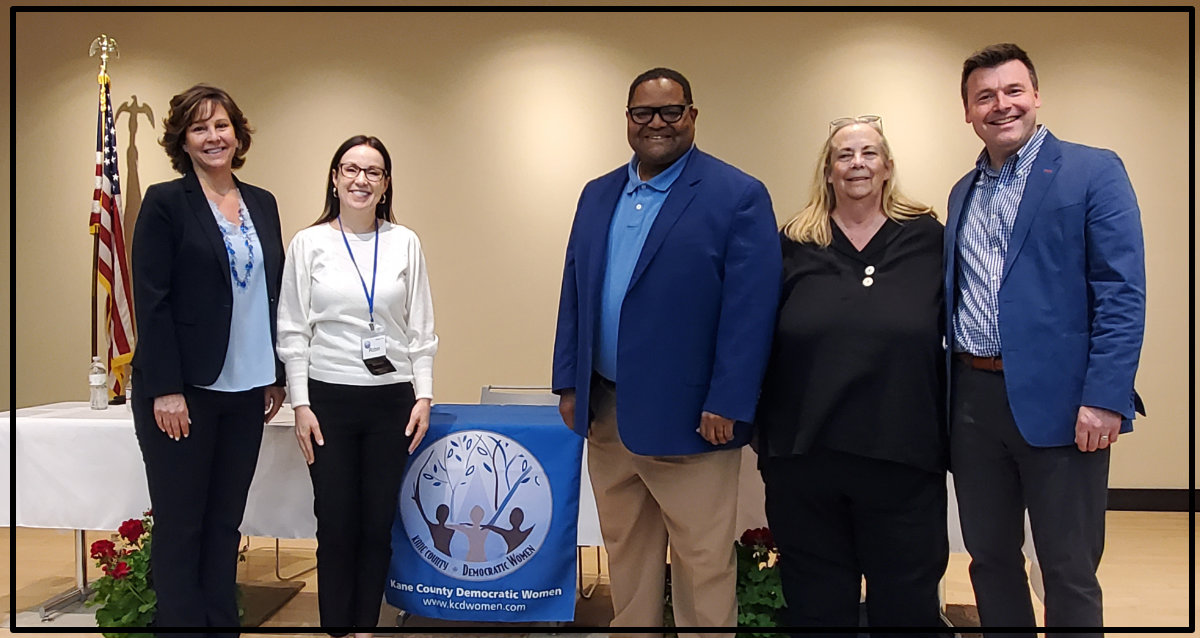Several members who attended the KCDW School of Thought forum at the Gail Borden Library in Elgin commented that this was our best forum in our five-year history as an organization. For two hours, the audience was spellbound by the moderator and forum panelists. Dr. William Muck, chair of the Political Science Dept. at North Central College, served as the moderator and began with an overview of the current political climate and its effect on society. One of these effects is the banning of books in public libraries.
Following the overview, Dr. Muck introduced the three panelists who discussed the influences driving how our children are being educated for tomorrow. Dr. Vincent Gaddis, a minister and history professor at Elgin Community College described how students are grappling with the uncomfortable narratives that can threaten their identity (who they are) and what makes up their history. He said that first-year college students come to college unprepared, lacking the social and critical thinking skills they need to learn. Dr. Gaddis expressed concern that the long arc of history is swinging backwards. Other histories and issues should be acknowledged in the classroom such as “Who is an American” and “What is democracy?”
Nancy Zettler, J.D., attorney, retired judge, and member of School Board District 300 talked about those who are trying to privatize education. In her district, the board is attempting to take care of the whole child, which involves social-emotional learning. Zettler stated that there are 72 different languages spoken in her district, Spanish being one of them. She went on to explain there are economic and cultural experiences that our future citizens need to experience. Citizens of other nations speak more than two languages. Being bilingual is an advantage.
Dr. Robin Barraza, retired district administrator, teacher, and business owner spoke about the curriculum at the state level. The state sets learning objectives and standards that each child must meet, but in Illinois, each district is able to choose the materials and learning materials to fulfill those objectives. She said that Texas and Florida have an undue influence on textbook materials based on the size of their states and the quantity of textbooks they order. Textbook costs are based on quantity. Barraza talked about the role of the school board, the legal issues, safety aspects, and that every student has rights in a public institution. She stated that bilingual education is a necessity so that children have an equal chance to learn. Diversity, equity, inclusion is the goal.
Each panelist expressed that we as individuals can start by educating ourselves, showing up at school board meetings so we know what is happening in our district, and providing encouragement to educators. We must invest in pubic education. Remember voting is our super power to bring about change in education and society as a whole.

